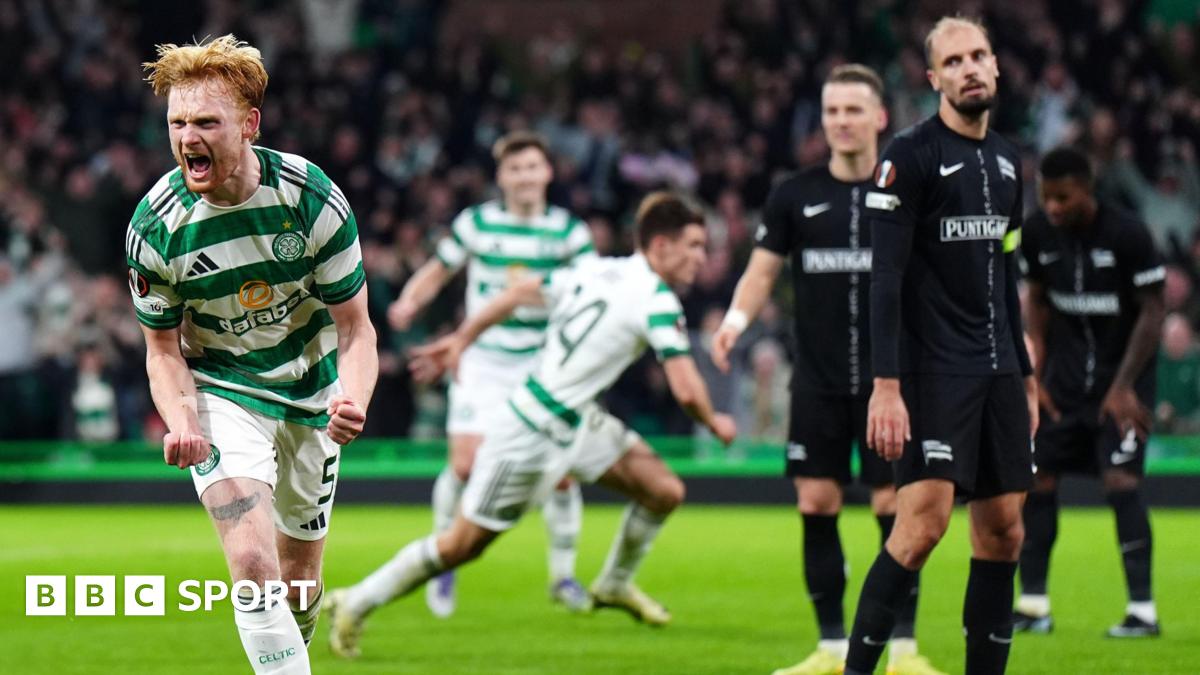Live Updates: Chauncey Billups and Terry Rozier Among Those Arrested in NBA-Linked Gambling Probes

Taken together, the two indictments, involving more than 30 defendants, will compel the league to confront questions about how far the misconduct has spread, and whether those accused of financial crimes affected the outcomes of games.The first indictment accused six defendants, including Terry Rozier, a guard for the Miami Heat, and Damon Jones, a former player and coach, of trading on inside information available to players and coaches to allow a network of conspirators to place winning bets on their games. Kash Patel, the F.B.I. director, called it the “insider trading saga for the N.B.A.”The N.B.A. said that Mr. Rozier and Mr. Billups, the coach of the Portland Trail Blazers, were being placed on immediate leave.The charges suggest that the first scheme had a real-time impact on at least one N.B.A. game. In March 2023, Mr. Rozier was a starting guard for the Charlotte Hornets. The indictment says that he told his co-conspirators that he was planning to leave a game early citing an injury, information that was not known to Hornets officials. The bettors made hundreds of thousands of dollars of bets and then split the proceeds with Mr. Rozier, said Jessica Tisch, the commissioner of the New York Police Department.Mr. Billups and Mr. Jones were accused of participating in the other scheme, involving the rigged poker games. Those games were set up by organized crime families — the Bonanno, Gambino, Lucchese and Genovese families — who would take cuts of the profits and use force to go after debtors, said Joseph Nocella Jr., the U.S. attorney for the Eastern District of New York.The investigation has been developing for years, federal and state officials said, and was coordinated by the F.B.I. and the New York Police Department’s Joint Organized Crime Task Force. Those officials said the case was ongoing and could result in more charges.The indictments come at a crucial time for the N.B.A., during the opening week of the season and as it starts new broadcast deals worth $76 billion over 11 years. They became public on Thursday morning when Mr. Rozier was arrested in Orlando, Fla., and Mr. Billups was arrested in Portland, Ore.The poker game scheme began as early as 2019, and rigged games were soon set up across the country, including in the Hamptons, Las Vegas, Miami and Manhattan, officials said.Victims were lured into games to get close to sports celebrities like Mr. Billups and Mr. Jones only to be cheated out of their money through technology like shuffling machines that had been altered to read the cards in the deck and predict which player at the table had the best hand, said Christopher Raia, the assistant director in charge of the F.B.I.’s New York Field Office.The gambling operation “hustled unwitting victims” and “created a financial pipeline for La Cosa Nostra to help fund and facilitate their organized criminal activity,” Mr. Raia said.Mr. Nocella said the technology also included “specially designed contact lenses and sunglasses to read the backs of playing cards, which ensured that the victims would lose big.”Victims believed they were sitting at a “fair table,” Commissioner Tisch said. Instead, they were cheated out of millions of dollars. One victim lost $1.8 million in the rigged games, she said.The related cases involved more than two dozen defendants, including three people who were accused of participating in both schemes.For more than a year, federal prosecutors in Brooklyn have focused on illegal gambling operations involving professional athletes. In 2024, a Brooklyn man was charged in an illegal sports betting scheme involving Jontay Porter, a forward for the Toronto Raptors. Mr. Porter, who was barred for life by the N.B.A. that year, pleaded guilty to wire fraud.The charges against Mr. Rozier and Mr. Billups are potentially the biggest hit to the N.B.A.’s reputation since 2007, when the referee Tim Donaghy was found to have bet on games.Mr. Rozier, 31, is in his 11th season in the N.B.A. and has been a key player for several teams. He did not play in the Miami Heat’s season-opener Wednesday night in Orlando.Mr. Billups, 49, is in his fifth season as a coach in Portland. As a player, Mr. Billups made five All-Star Games and starred for the Detroit Pistons, leading the team to the 2004 N.B.A. title, when he was named the most valuable player of the finals. He was inducted into the Basketball Hall of Fame as a player last year.The N.B.A. said that it would continue to cooperate with the authorities. “We take these allegations with the utmost seriousness and the integrity of our game remains our top priority,” the league said in a statement.Mr. Rozier’s agent, Aaron Turner, did not immediately respond to a request for comment. The Heat declined to comment. Representatives for the Trail Blazers did not immediately respond to requests for comment.Chelsia Rose Marcius and William K. Rashbaum contributed reporting.A correction was made onOct. 23, 2025:An earlier version of this article misstated the status of legal charges against Jontay Porter in a gambling scheme. Porter was charged and pleaded guilty; it is not the case that he was not charged.When we learn of a mistake, we acknowledge it with a correction. If you spot an error, please let us know at nytnews@nytimes.com.Learn moreFamous people were paid to recruit wealthy players for the game.Mafia members helped organize and provide security for the rigged poker games. But to lend credibility to the games, the mafia members needed former professional athletes like Chauncey Billups and Damon Jones, who were known as “face cards.”The role of the “face cards” was to invite wealthy people to participate — in exchange for a portion of the illegal profits, according to prosecutors.The players cheated with sophisticated technology.Court documents detailed all the ways the games were rigged, reading like scenes from the movie “Ocean’s Thirteen.”The machine that shuffled the cards was not just randomly mixing them up: It had technology hidden inside that could read the cards in the deck, predict which player had the best hand and then relay that information to somebody off site. That person would then use a cellphone to communicate the intel to someone at the table, who would steer the other cheating players with secret signals, like tapping certain chips or body parts.In some of the rigged games, the poker chip trays had hidden cameras that could read the cards on the table. The cards also sometimes had markings that were visible only to people wearing specially designed contact lenses or sunglasses.Losing players faced the threat of violence and extortion.The rigged card shuffling machines were so important to the scheme that a group of the defendants robbed someone at gunpoint to steal a specific model of the machine from him. The indictment doesn’t name the victim.When players failed to repay the debts they accrued from the poker games, the defendants used extortion and threats of violence to get their money, prosecutors said.The case involved different mafia families operating illegal gambling dens.One game, controlled by the Bonanno crime family, was hosted primarily at 147 Lexington Avenue in Manhattan’s Kips Bay neighborhood, prosecutors said.Another, controlled by the Gambino crime family, was hosted primarily at 80 Washington Place in Manhattan’s West Village neighborhood, they said.The games also took place in the Hamptons, Las Vegas and Miami, prosecutors said.Eight players, including Joe Jackson — known by the nickname Shoeless Joe — were banned from baseball for life, though in May the M.L.B. commissioner, Rob Manfred, removed them from the permanently ineligible list.The team became known as the Black Sox, and the scandal was the basis for the 1988 film “Eight Men Out.”Pete Rose, one of baseball’s greatest players and the game’s career hits leader, was caught up in a gambling scandal when he was managing the Cincinnati Reds. He was accused of betting on baseball, which is strictly forbidden.In 1989, he was banned for life and barred from consideration for the Hall of Fame, to which he would have been elected with ease. Mr. Manfred reinstated Mr. Rose in May, eight months after his death, making him eligible again for the Hall of Fame. Mr. Rose eventually confessed, but said he had never bet against his own team.Basketball’s biggest betting scandals have mostly come in the college ranks, in part because until recently college players were not paid, and had more incentive than a well-paid professional to cheat to make money. Most scandals involved point shaving — winning a game, but making sure to do so by a smaller margin that the bookmakers predicted.Among the colleges that were accused of point shaving over the years were the City College of New York, along with other schools (1951), Boston College (1979), Tulane (1985), Arizona State (1994), Northwestern (1995) and Toledo (2006).The other most notable gambling scandal in the N.B.A. involved not a player or coach but a referee, Tim Donaghy. He admitted to betting on games he refereed from 2003 to 2007. His associates claimed that when Mr. Donaghy refereed one of these games, his influence assured that the team being bet on won almost 80 percent of the time.The new N.B.A. scandal involves, in part, “spot fixing,” which takes advantage of the fact that gamblers can now bet on just about any aspect of a game. In spot fixing, players don’t fix a whole game, but they manipulate some smaller element, such as how many points a certain player scores.One of the most prominent spot fixing scandals came in the oh-so-proper sport of cricket. Three members of the Pakistan national team arranged to record a “no ball,” in which the bowler steps over the line improperly, at predetermined moments, so that bettors could correctly predict them. The three were convicted and sent to jail and banned from cricket for five years.







